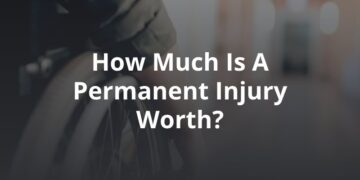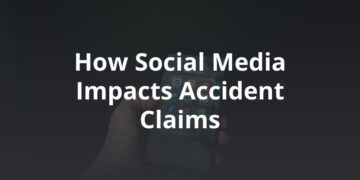More and more, we are hearing from people who went to the hospital after suffering an injury, only to receive a letter in the mail days, weeks, or months later notifying them that the hospital has filed a lien against them. They might have also received solicitations from personal injury law firms offering to help them handle the lien.
The injured individual, already frustrated and overwhelmed trying to deal with the unexpected disruption the injury has caused, is concerned about the implications of the correspondence they’ve just received, and doesn’t know what to do.
The purpose of this article is to help you understand what a hospital lien is, what a hospital lien means for your personal injury case, how hospital liens are used and abused by insurance companies, and how the lien should be handled.
What Is a Hospital Lien?
When a hospital provides emergency medical services to an individual who was hurt by the negligence of another person, the hospital has the right to protect itself and the money it is owed by securing a lien against the injured individual’s personal injury claim.
The hospital secures the lien by filing written notice with the county in which the services were provided, and sending notice to the injured individual that the lien has been filed. A properly filed hospital lien becomes public record, thereby putting the public on notice that the hospital is owed money (this is where the law firms sending you solicitations got your information).
What Does a Hospital Lien Mean for My Personal Injury Case?
Once a hospital lien has been filed, the negligent person’s insurance company is put on notice of the hospital’s right to payment. So, once a settlement has been reached, the insurance company will either refuse to pay the settlement until the hospital lien has been resolved, or demand to pay the hospital directly to satisfy the hospital’s bill.
This can be a huge problem for your case, particularly when the hospital bill is large or inflated; the more money that goes to the hospital, the less money that goes to you.
How Can a Hospital Abuse a Hospital Lien?
Hospitals know they can hold your personal injury settlement proceeds hostage by using a lien; it is an extremely powerful tool to help hospitals get paid for emergency treatment they are required to provide to injured people. Knowing this, hospital staff members ask the injured person whether they were hurt by the negligence of someone else, such as in a car accident.
If the hospital has reason to suspect the negligent person has insurance, the hospital will frequently lead the injured person to believe the other person’s insurance will pay for it, and discourage the injured person from using their own health insurance.
Why would a hospital do this? Money. Hospitals usually have contracts with health insurance companies (including governmental health insurance companies, like Medicare and Medicaid) that require the hospital to take substantial discounts (usually called “adjustments”) when their bill is submitted to the health insurance company for payment.
If the hospital convinces the patient not to use their health insurance, though, the hospital can then secure a hospital lien for the full billed amount, thereby avoiding the substantial discount they are otherwise required to take.
The hospital will then hold the injured individual’s settlement hostage and seek payment for much more money than it would have collected if the bill had been submitted to health insurance.
How Should My Hospital Lien Be Handled?
Each case is different, and needs to be carefully evaluated in order to determine the correct approach for handling the hospital lien. Dealing with the hospital lien properly and at the right time can dramatically change the outcome of a case.
However, the law affords a variety of methods for protecting yourself from hospital lien abuse. For example, a hospital can be forced to submit the bill to health insurance, which, if done properly, will dramatically reduce the amount of the bill the hospital lien protects.
Additionally, the hospital lien can be challenged in court. Because the lien only protects “reasonable” charges, a lawsuit can force an unreasonable hospital to dramatically reduce what they are owed.
This method gained some teeth in a recently issued decision by the Texas Supreme Court, In re North Cypress Medical Center Operating Co., which allows injured individuals to force hospitals to share sensitive information about the hospital’s billing practices when the individual challenges the hospital’s reasonableness.
FVF prides itself in providing no-pressure, in-depth consultations to help injured individuals gain a better understanding of their rights and legal options. We believe that by making informed decisions, injured individuals can reduce the stress and disruption caused by the incident, and improve the overall outcome of their case.
If you have questions about a hospital lien, contact us today to learn more about your options. You won’t regret it.









